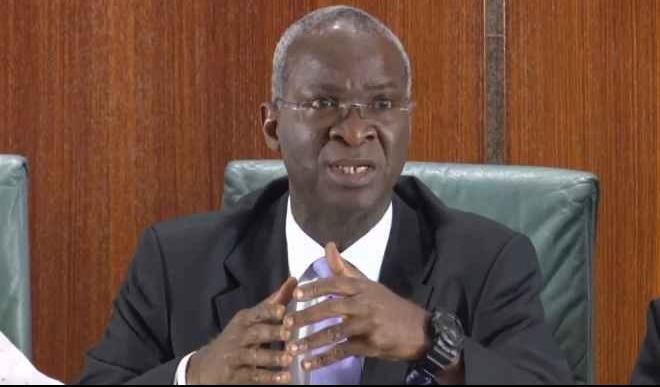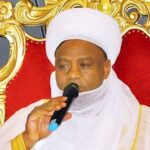Abraham Lincoln, the late American president who said a lot of wise things in his time, once said: “Better to remain silent and be thought a fool than to speak and remove all doubt.”
The Daily Trust of February 12 published this quote on page 2. On page 18, the paper reported: “Power reaches 5,373MW, sustains 5,000MW trend for seven days.” Someone is not listening to Lincoln’s advice. It is a natural tendency for people to crow when the shaky shaft of light on the horizon is instantly accepted as evidence of progress. We are fairly used to this in Nigeria – the intermittent crowing, that is. It saves us the shame of admitting that an up-and-down movement is merely a walk on the same spot. As you read the details of the story below, please bear in mind that this country no get shame.
According to the newspaper, “The national grid has soared to 5,375 megawatts of power generation, the highest ever attained in Nigeria. The grid has also sustained a 5,000 megawatts peak generation trend for seven days so far in February 2019.” Funny. We are being invited to rejoice that nearly 59 years as an independent nation and an economic power considering our proverbial oil wealth to boot, Nigeria could now generate 5,373 megawatts of electricity to serve its 198 million people. If you thought this impressive level of power generation has been sustained you would be wrong, totally wrong. Within the same week, the power generation crashed from 5,375 megawatts to 5,003 megawatts, then 5,001 megawatts and wait for it, 3,600 megawatts.
The power generation and transmission people thought this was something for which it was not foolish to crow and roll out the red carpet for this one good reason: In December 2017, according to details obtained by the paper, power generation peaked at 5,222 megawatts. If, more than one year later, power generation soared into the stratosphere of 5,373 megawatts no one needs to be told that the candle sellers have at last lost out to the electricity people. Except that they have not.
Look at those two figures again and see if you need anyone to tell you that there is nothing worth celebrating here because this is not progress. Our country is plodding along the path of modern development with its feet tied firmly to the millstone of inadequate electricity supply. We have been battling with this scourge for as along as those who care to remember can remember. You would perhaps appreciate the level of our progress more against this background. Under his watch as minister of power and steel in the Buhari military administration, 1984-85, the late Rilwanu Lukman created a record when power generation hit a peak of some 2,000 megawatts. About 35 years later, we are not even ashamed to say that we have been able to add only a whopping 3,375 megawatts of power generation to the national grid at a cost that befuddles the mind. But to be fair, only the unpatriotic would fail to recognise this for what it really is: a leap in power generation and transmission in Nigeria.
Our country is listed among some five African countries that cannot get the formula right for steady and adequate power generation and transmission. The others are Ethiopia, Democratic Republic of Congo, Tanzania and Kenya. Nigeria is the only country on the list in West Africa. In a 2015 report on Africa power deficit, ISI noted that with a population approaching 180 million as at then, 90 million citizens were without electricity. Theoretically, yes. But with a population of 198 million now, even more and more people lack access to electricity.
The report noted that “Nigeria is famous for its dodgy power grid, with outages and brownouts frequent in its urban areas.” It offered three reasons for this dodgy state of affairs. “First, there has been long standing under-investment in capacity increase and maintenance which can be linked in large part to massive corruption on behalf of the country’s political elite. Second, Nigeria’s regulatory environment has created an oligopoly of power distribution companies that face little domestic competition, keeping rates high and service poor. Lastly, Nigeria is plagued by vandalism of its transmission and infrastructure and pipe lines, largely due to citizens seeking to siphon off oil or electricity; again poor maintenance and security are to blame. Overall, solving these problems is a question of political will.”
There is always a problem with finding the magic political will, the only will that solves national problems. We must continue to search for ours if we are committed as a nation to owning the only transformative power in modern development. Power generation and transmission problems are much more complex than the fitful progress in power generation alone. We know, don’t we, that transmission poses a major problem of its own. The power transmission lines are old and rickety. There is a limit to the power load it could carry. In the early months of the Obasanjo administration, the minister of power and steel, the late Chief Bola Ige, driven by the ambition to solve this crippling national problem, overloaded the system and it collapsed, worsening the epileptic electricity power supply. It stands to reason that if power generation and power transmission do not walk along the same path together, progress in one would drag down progress in the other. And the result would be what we have today.
Let me offer the power generation and power transmission companies a piece of sane advice gratis. Quit telling us about megawatts. They mean nothing to us. Quit crowing when the needle in the power generation grid fitfully rises because you are only marketing false hope to a people hungry for hope.

 Join Daily Trust WhatsApp Community For Quick Access To News and Happenings Around You.
Join Daily Trust WhatsApp Community For Quick Access To News and Happenings Around You.


